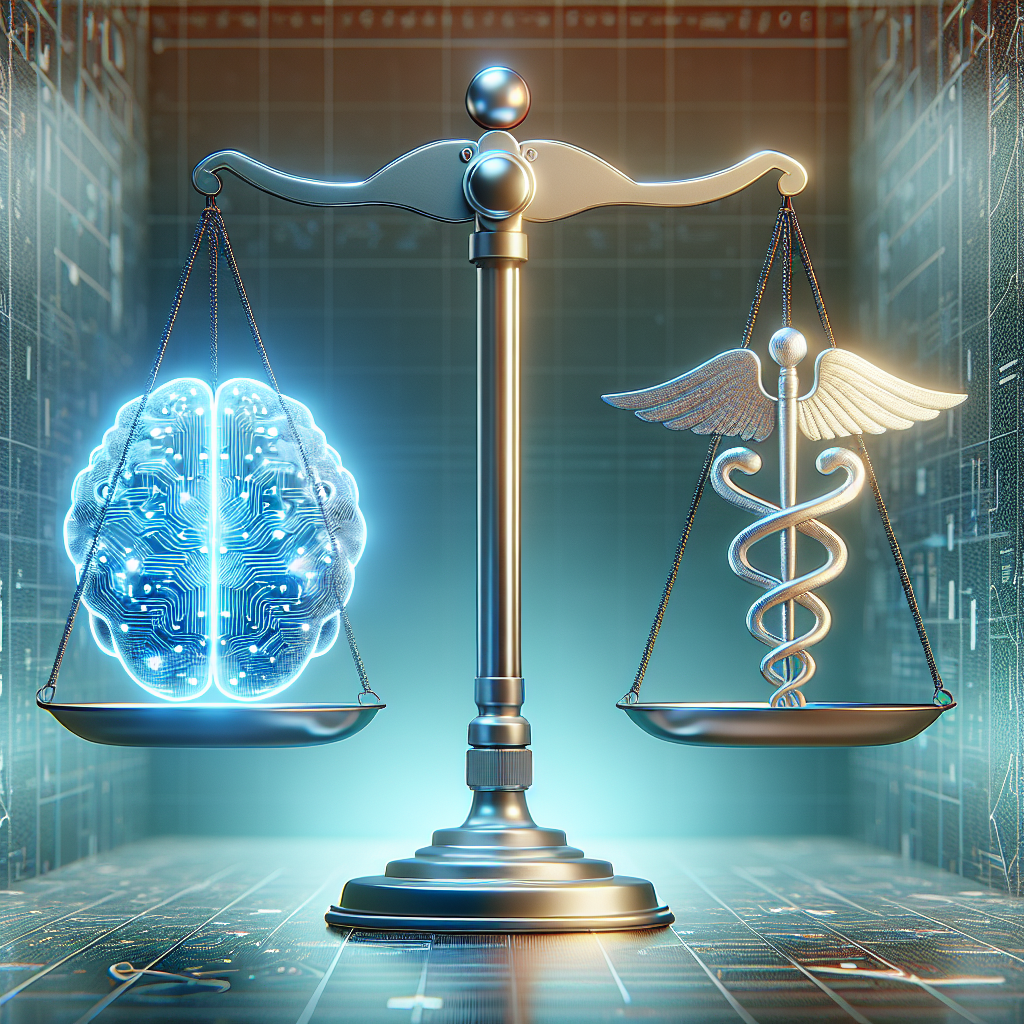In recent years, the field of artificial intelligence (AI) has made significant advancements in various industries, including healthcare. AI has the potential to revolutionize public health by improving the efficiency and accuracy of disease diagnosis, treatment planning, and outbreak prediction. However, as AI technologies become more sophisticated, it is crucial to consider the ethical implications of using AI in public health. In this article, we will explore the intersection of ethical AI and the future of public health.
Ethical AI in Public Health
Ethical AI refers to the responsible development and deployment of AI technologies that prioritize fairness, transparency, accountability, and privacy. In the context of public health, ethical AI involves ensuring that AI systems are designed and used in a way that upholds the values of healthcare ethics, such as beneficence, non-maleficence, autonomy, and justice.
One of the key ethical considerations in using AI in public health is ensuring that AI algorithms are unbiased and do not perpetuate existing inequalities in healthcare. AI systems are trained on large datasets, which may contain biases that can result in discriminatory outcomes. For example, if an AI algorithm is trained on data that predominantly includes patients from a certain demographic group, it may not perform well for patients from other demographic groups. To address this issue, researchers and developers must carefully evaluate and mitigate biases in AI algorithms to ensure fair and equitable healthcare outcomes for all patients.
Another ethical consideration in using AI in public health is the protection of patient privacy and data security. AI systems rely on vast amounts of data to learn and make predictions, which may include sensitive information about individuals’ health conditions and medical histories. It is essential to implement robust data protection measures, such as encryption, anonymization, and access controls, to safeguard patient data and maintain trust in AI technologies.
Furthermore, transparency and explainability are crucial aspects of ethical AI in public health. Healthcare providers and patients must understand how AI algorithms make decisions and recommendations to ensure that they are based on sound clinical evidence and reasoning. Transparent AI systems enable healthcare professionals to trust and validate the outputs of AI algorithms, leading to improved patient care and outcomes.
The Future of Public Health with AI
AI has the potential to transform public health by enabling more personalized and precise healthcare interventions, improving disease surveillance and outbreak response, and optimizing healthcare delivery systems. Here are some ways in which AI can revolutionize public health in the future:
1. Disease Diagnosis and Treatment Planning: AI algorithms can analyze medical images, genetic data, and clinical notes to assist healthcare providers in diagnosing diseases, predicting treatment outcomes, and recommending personalized treatment plans. By leveraging AI technologies, healthcare professionals can make faster and more accurate decisions, leading to improved patient outcomes and reduced healthcare costs.
2. Outbreak Prediction and Surveillance: AI-powered predictive models can analyze vast amounts of data, such as social media posts, internet search trends, and environmental factors, to detect early signs of disease outbreaks and monitor the spread of infectious diseases in real-time. By using AI for outbreak prediction and surveillance, public health agencies can implement timely interventions and containment strategies to prevent the spread of diseases and protect public health.
3. Healthcare Resource Allocation: AI algorithms can optimize the allocation of healthcare resources, such as hospital beds, medical supplies, and healthcare personnel, to meet the needs of patients and communities efficiently. By using AI for resource allocation, healthcare providers can enhance the quality of care, reduce wait times, and improve patient satisfaction.
4. Public Health Policy Making: AI-powered analytics tools can analyze population health data, social determinants of health, and healthcare utilization patterns to inform evidence-based public health policies and interventions. By leveraging AI for policy making, public health agencies can address health disparities, promote health equity, and improve population health outcomes.
FAQs
Q: How can AI help improve healthcare outcomes for underserved populations?
A: AI can help improve healthcare outcomes for underserved populations by enabling more personalized and accessible healthcare interventions, facilitating early disease detection and prevention, and optimizing healthcare delivery systems to meet the unique needs of underserved communities.
Q: What are the potential risks of using AI in public health?
A: The potential risks of using AI in public health include biases in AI algorithms that can lead to discriminatory outcomes, privacy and data security concerns, lack of transparency and explainability in AI systems, and challenges in integrating AI technologies into existing healthcare workflows and practices.
Q: How can we ensure the ethical use of AI in public health?
A: To ensure the ethical use of AI in public health, researchers, developers, healthcare providers, and policymakers must prioritize fairness, transparency, accountability, and privacy in the development and deployment of AI technologies. This includes evaluating and mitigating biases in AI algorithms, implementing robust data protection measures, promoting transparency and explainability in AI systems, and engaging stakeholders in ethical decision-making processes.
In conclusion, ethical AI has the potential to revolutionize public health by improving disease diagnosis, treatment planning, outbreak prediction, and healthcare delivery. By prioritizing fairness, transparency, accountability, and privacy in the development and deployment of AI technologies, we can harness the power of AI to enhance healthcare outcomes, promote health equity, and protect public health. As AI continues to advance, it is essential to address the ethical implications of using AI in public health to ensure that AI technologies benefit patients, healthcare providers, and communities alike.

